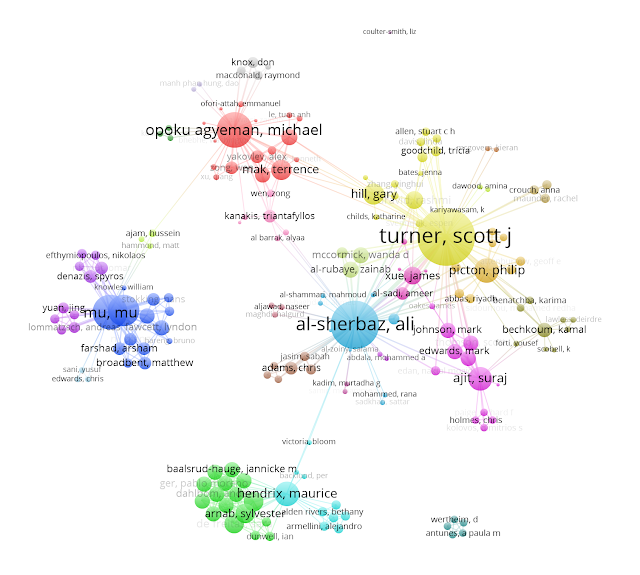- Ajam, H. and Opoku Agyeman, M. (2017) A study of recent contributions on performance and simulation techniques for accelerator devices. In: International Conference on Electrical and Electronics Engineering. Turkey: IEEE ICEEE. (Accepted)
- Al Barrak, A., Al-Sherbaz, A., Kanakis, T. and Crockett, R. G. M. (2017) Utilisation of multipath phenomenon to improve the performance of BCH and RS codes. In: 8th Computer Science & Electronic Engineering Conference. New York: IEEE. 978-1-5090-2050-8. pp. 6-11.
- Al-Mahmood, A. and Opoku Agyeman, M. (2017) A study of FPGA-based System-on-Chip designs for real-time industrial application. International Journal of Computer Applications. 0975-8887. (Accepted)
- Al-Waisi, Z. and Opoku Agyeman, M. (2017) An overview of on-chip cache coherence protocols. In: IEEE IntelliSys Conference 2017 Proceedings. London: IEEE. (Accepted)
- Al-Zoiny, S. and Al-Sherbaz, A. (2017) Connected Health Services in Smart Technologies. UK: Kobo Publisher. 1230001603163.
- Azasoo, J., Kuada, E., Osei Boateng, K. and Opoku Agyeman, M. (2017) An algorithm for micro-load shedding in generation constrained electricity transmission network. Paper presented to: Institute of Electrical and Electronics Engineers (IEEE) Power and Energy Society (PES) PowerAfrica Conference 2017, Accra, Ghana, 27-30 June 2017. (Accepted)
- Dawood, A., Turner, S. J. and Perepa, P. (2017) Developing a new automated model to classify combined and basic gestures from complex head motion in real time by using All-vs-All HMM. Journal of Emerging Technologies and Innovative Research.4(3), pp. 156-165. 2349-5162.
- Fawcett, L., Mu, M., Hareng, B. and Race, N. (2017) REF: enabling rapid experimentation of contextual network traffic management using Software Defined Networking. IEEE Communications Magazine. 0163-6804. (Accepted)
- Manh Phan Hung, D., Manyam Seshadri Naidu, S. and Opoku Agyeman, M. (2017) Architectures for cloud-based HPC in data centers. In: IEEE International Conference on Big Data Analysis. Beijing, China: IEEE. (Accepted)
- Opoku Agyeman, M., Vien, Q.-T., Hill, G., Turner, S. J. and Mak, T. (2017) An efficient channel model for evaluating Wireless NoC architectures. In: 2016 International Symposium on Computer Architecture and High Performance Computing Workshops (SBAC-PADW). Online: IEEE. 978-1-5090-4844-1. pp. 85-90.
- Opoku Agyeman, M. and Zong, W. (2017) An efficient 2D router architecture for extending the performance of inhomogeneous 3D NoC-based multi-core architectures. In: 2016 International Symposium on Computer Architecture and High Performance Computing Workshops (SBAC-PADW). USA: IEEE . 978-1-5090-4844-1. pp. 79-84.
- Opoku Agyeman, M., Zong, W., Yakovlev, A., Tong, K.-F. and Mak, T. (2017) Extending the performance of hybrid NoCs beyond the limitations of network heterogeneity. Journal of Low Power Electronics and Applications. 2079-9268. (Accepted)
- Saleh Alalaki, M. and Opoku Agyeman, M. (2017) A study of recent contributions on simulation tools for Network-on-Chip (NoC).International Journal of Computer Systems. 4(3) 2394-1065. (Accepted)
- Vien, Q.-T., Le, T. A., Phan, C. V. and Opoku Agyeman, M. (2017) An energy-efficient NOMA for small cells in heterogeneous CRAN under QoS constraints. Paper presented to: 23rd European Wireless (EW), Dresden, Germany, 17-19 May 2017. (Accepted)
- Yuan, J., Lorenz, F., Lommatzsch, A., Mu, M., Race, N., Hopfgartner, F. and Albayrak, S. (2017) Countering contextual bias in TV watching behavior: introducing social trend as external contextual factor in TV recommenders. In: ACM International Conference on Interactive Experiences for Television and Online Video (ACM TVX). The Netherlands: ACM. (Accepted)
All views and opinions are the author's and do not necessarily reflected those of any organisation they are associated with. Twitter: @scottturneruon

